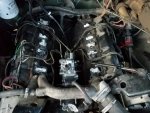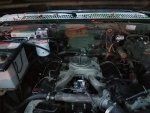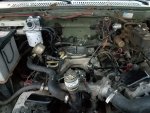wpy2080
New member
- 15
- 1
- 1
- Location
- Chicago, Illinois
I have a 94 M998 with a GM 6.2. My buddy has an 87 M998 with the same 6.2. When you drive the two trucks back to back, on the same day, with the same payload, the newer 6.2 has significantly more pep, especially at low speeds. Throttle response better and it's faster. Both trucks have the upgraded S3 brain box and new glow plugs. The 94 has a rebuilt IP and a new fuel pump. What are your thoughts on the performance difference? Just age? Could the newer fuel pump and rebuilt IP give it an edge in engine performance. I know it's tough to say given the variables here but wondering general thoughts on the matter considering there are so many trucks with the same 6.2 engine.




